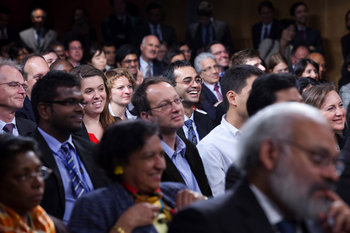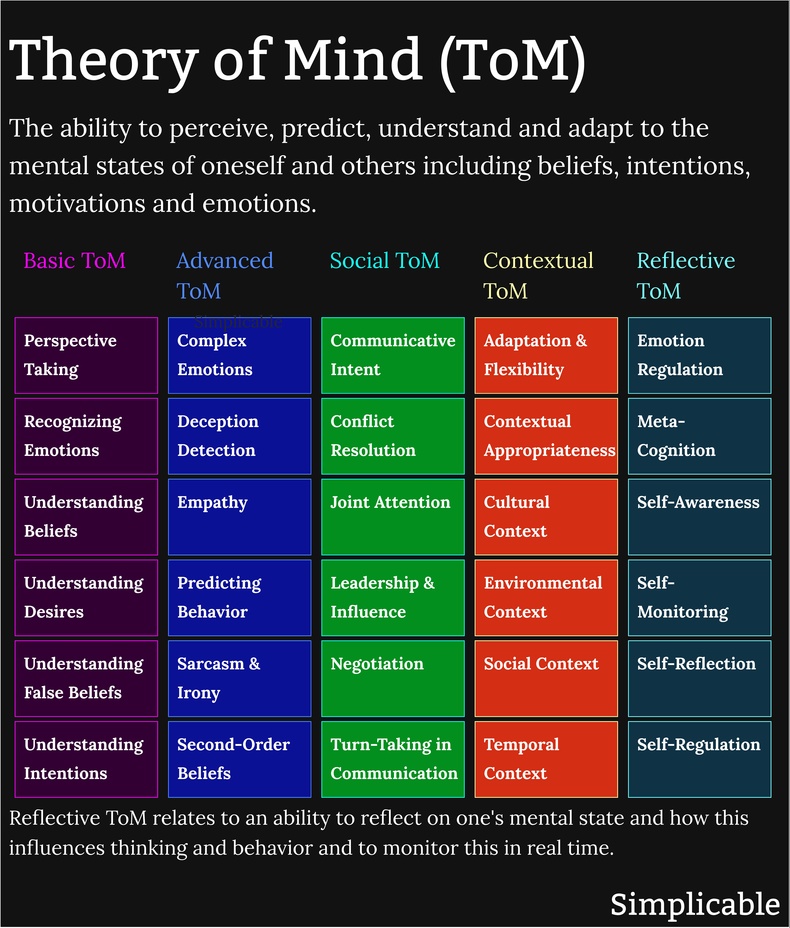
Basic Theory of Mind
Basic abilities to perceive what others may be thinking and feeling including trying to understand their motivations and intentions. This includes the understanding that others can be wrong about something. Basic theory of mind abilities are typically developed between the ages of 2-5.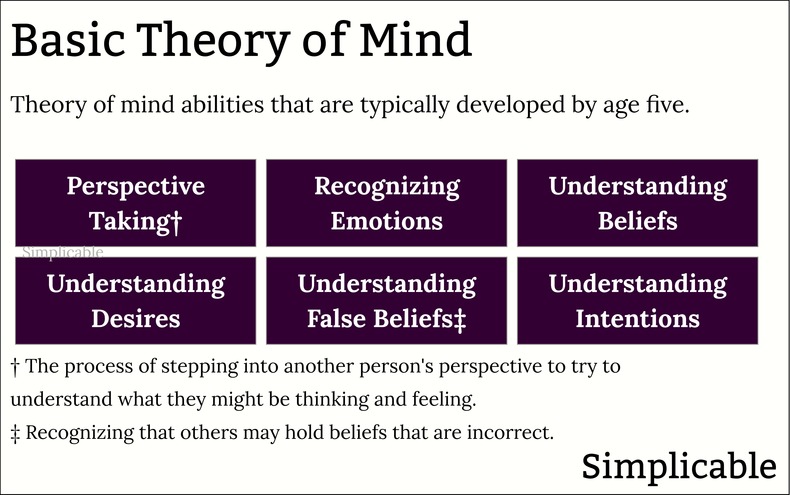
Advanced Theory of Mind
The ability to understand the mental states of others develops throughout your life and is a deep type of cognitive skill. We can't read other people's minds such that years of experience in dealing with people will help you to identify what they might be thinking and feeling. Likewise, there is often a great divide between what people say and what they really mean such that reading people is a key to understanding verbal and non-verbal communication.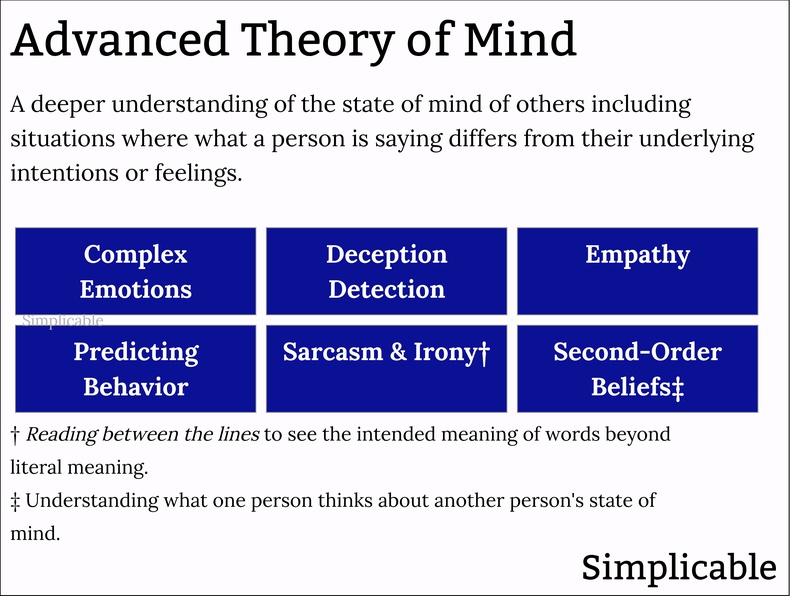
Social Theory of Mind
Using theory of mind in a social context by monitoring how thoughts, feelings and intentions are flowing in order to communicate and accomplish goals. This includes the capacity to listen intently to others including reading their underlying meaning and emotion.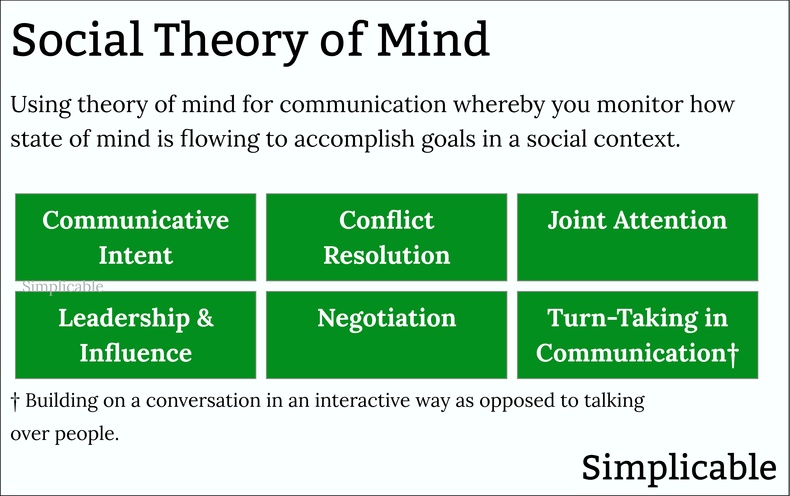
Contextual Theory of Mind
Considering state of mind with respect to time, culture and situation. For example, understanding that someone you haven't seen for a while is probably in a different mood from the last time you spoke.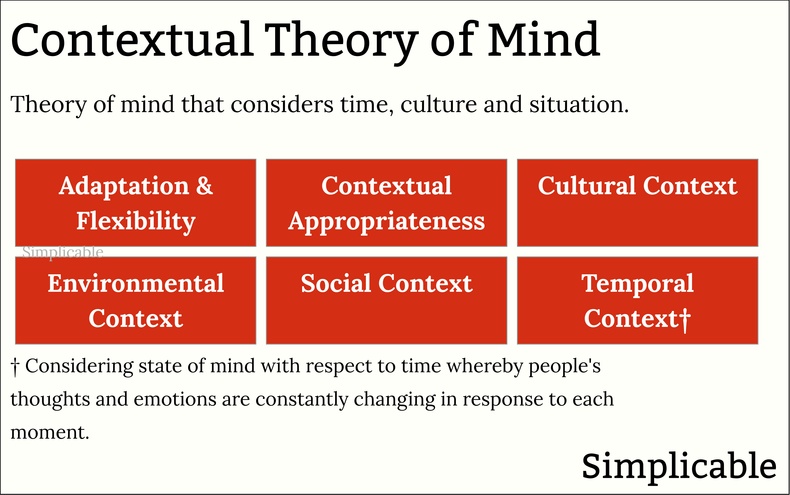
Reflective Theory of Mind
Examining your own state of mind including mood, thoughts, attitudes, emotions and perceptions. This can be a reflective thing whereby you consider your mental processes in order to examine and perhaps improve your character or performance. It is also common to monitor your state of mind in real time in order to adapt. For example, recognizing that a negative mood is coloring your thoughts and trying to shift into more positive thought patterns.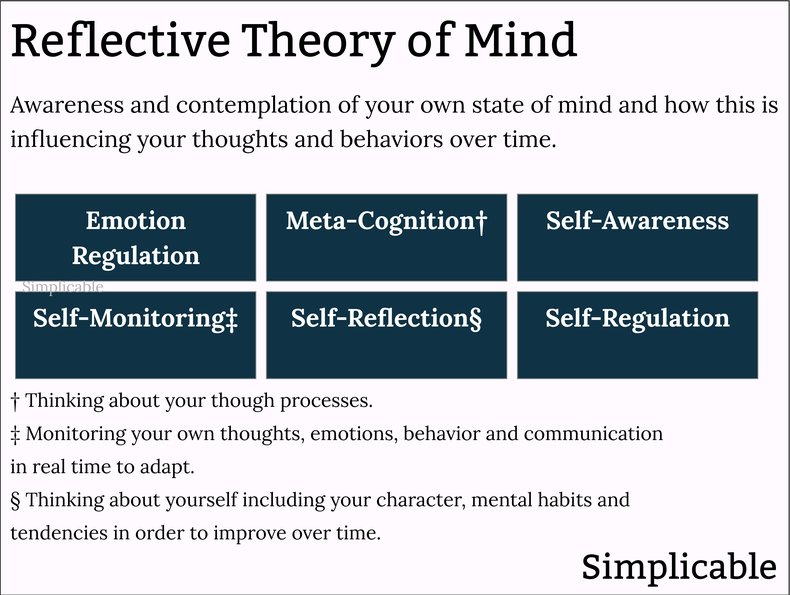
Perspective-Taking
Perspective-taking is the ability to consider alternative points of view such as the thoughts and feelings of other people.Mentalizing
Mentalizing is the ability to understand mental states including our own and those of others. This is viewed as an imaginative mental activity that simulates attitudes, beliefs, moods and other elements of state of mind. The term mentalizing is more or less synonymous with theory of mind.What is State of Mind?
A state of mind, or mental state, is the set of internal factors that influence an individual's thought processes at a point in time. This includes mood, emotions and mental processes such as attention, imagination or perception.Access to Information | Attention |
Attitudes | Beliefs |
Imagination | Intentions |
Memory | Mood |
Motivation | Perception |
Self-Awareness | Thoughts |
























